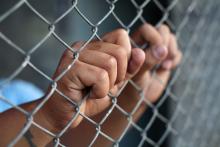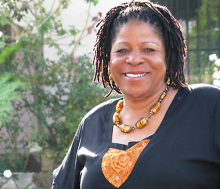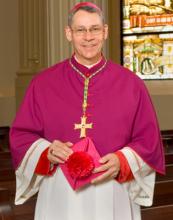Criminal Justice

Editor’s Note: On Monday night, it was announced that a grand jury in St. Louis County found no probable cause to indict Ferguson, Mo., police officer Darren Wilson on any of five possible counts. Throughout the country, protests have erupted. For this week’s edition of the Weekly Wrap, we wanted to offer you the 10 most important things you should see, read, digest to understand the situation. We pray for peace.
1. Letter From Birmingham Jail
by Martin Luther King Jr. Far more relevant than it should be. Print it out. Write on it. Pray through it. "In the midst of blatant injustices inflicted upon the Negro, I have watched white churchmen stand on the sideline and mouth pious irrelevancies and sanctimonious trivialities."
2. PHOTOS: Scenes From Ferguson — and Beyond
Slate compiled these chilling shots from protests in Ferguson, New York City, Los Angeles, Washington, D.C., and more.
3. A Sad Night for America
“It is time to right the unacceptable wrong of black lives being worth less than white lives in our criminal justice system." our criminal justice system."
THE SAD RECORD of human history shows that torture has more often been the rule rather than the exception—in criminal justice systems as well as in interethnic, intercommunal, and international conflicts.
The use of torture in such situations—and brutalities that might fall short of torture but are nonetheless brutalities—can have many motivations. Torture demonstrates absolute power. Torture wreaks vengeance. Torture intimidates. Torture punishes. Torture coerces behavior change. Torture harms, and sometimes the sheer (perverted) pleasure of doing harm is enough motivation. And yes, torture is sometimes deployed to elicit information, confession, or “actionable intelligence.” (This was the main ostensible reason why the U.S. tortured after 9/11. But other factors on this list should not be overlooked.)
Torture appears to come all too naturally to fallen humanity. That is a still quite useful theological term that conveys the belief that humanity was created good by a good God but has fallen into sin and thus has suffered disastrous individual and collective damage to its character. Fallen human beings and human communities resort easily to torture.
So one way to talk about the ethics of torture and brutality is to start exactly here—with the historically and theologically grounded claim that torture has more often been the rule rather than the exception in human history, a dark but pervasive aspect of the behavior of fallen humanity. But what if we turn the discussion of torture upside down in what might be a constructive way?

THE UNITED STATES has more than 2.3 million prisoners, a higher number than any other country. How did we become the world’s leading jailer? One of the main culprits: Mandatory sentences.
Visiting those in prison and giving Christmas gifts to children of incarcerated parents are only two steps toward fulfilling Jesus’ command to care for the “least of these” (Matthew 25). It’s time for the church to get serious about criminal sentencing reform—particularly, the reform of mandatory minimum sentencing laws, which lock up so many people for so long with so little benefit to society.
The explosion in state and federal prison populations and costs began in the 1980s with the so-called war on drugs. Lengthy mandatory minimum prison sentences passed by lawmakers are the primary weapon in that “war.” Judges have no choice but to apply these automatic, non-negotiable sentences of five, 10, or 20 years or even life in prison without parole. Whether the punishment actually fits the crime or the offender, protects the public, or leads to rehabilitation is irrelevant.
The results are unsurprising: irrational sentences, $80 billion annually in prison costs, and horrifically overcrowded prisons. States as varied as Georgia, New York, Delaware, South Carolina, California, and Michigan have confronted the reality of unsustainable prison budgets by repealing mandatory minimum sentences or creating “safety valve” exceptions that let judges go below the mandated punishment if the facts and circumstances warrant it. During this wave of reforms, crime has dropped to historic lows.

Bio: Founder of A New Way of Life Reentry Project in California, which has provided housing and support for more than 500 formerly incarcerated women. anewwayoflife.org
1. What motivated you to start A New Way of Life in 1998?
Through the kindness of a special person, I was able to access treatment services in Santa Monica [Calif.] after the sixth and final time I was released from prison. This was a new phenomenon for me. I am originally from South Los Angeles, and I was amazed that such resources were available in this more-affluent part of the city. I began to wonder why those same resources were not available in my home community—an area so heavily impacted by the “war on drugs.” I knew the need was desperate, and I wanted to bring those resources to South L.A. My work since then has been, and continues to be, a work of faith. I step out in faith, and God shows up.
I can’t think of a way that it’s good for anyone. The current system treats everyone inhumanely. It puts them into the category of slaves. It exploits their families. It kills their hopes and dreams. Our mission is to address the needs of people who have been negatively and cruelly treated by the criminal justice system and to restore their hopes and dreams by treating them with dignity and respect.

Finn, leader of the Diocese of Kansas City-St. Joseph and an outspoken conservative in the American hierarchy, was convicted of a single misdemeanor count for not telling police that one of his priests, the Rev. Shawn Ratigan, had taken hundreds of lewd images of children in Catholic schools and parishes.
But even as he became the first U.S. bishop ever convicted in criminal court for shielding an abusive priest, Finn’s standing inside the church appears uncertain, and the subject of intense debate.
Should he stay or should he go? Finn has indicated that he wants to tough it out.
Last month, the U.S. Senate held its first hearing ever on the issue of solitary confinement in prisons. To draw attention to the issue, the National Religious Campaign Against Torture urged Americans to fast for 23 hours for one day, symbolizing the 23 hours a day prisoners spend in solitary confinement each day.
"Christian scriptures and the scriptures of all religions say much about the way we are to treat other human beings, especially the most vulnerable," said the Rev. Richard Killmer, executive director of NRCAT. "And all religious traditions teach that it is important to honor and respect the dignity and worth that God has endowed in each human being. When we put people into solitary confinement cells, which we know are going to cause harm, then we have deeply violated that requirement from God to honor and respect each human being."
The fight against mass incarceration is joined by an emerging faith-based movement.
The Side Effects Of Fast-Tracking Deportations; Ten Percent Of All Major Mainstream Media News Was About Occupy Wall Street Last Week; Mexican Clown Convention Holds 'Laugh For Peace'; What Has Obama Done For Poor People?; Class Warfare In The Senate Race; Restorative Justice And The Economy Of Grace; Pastors Hope For A Louder, Unrestricted Voice In 2012 Election; Jesus At Occupy Wall Street: 'I Feel Like I've Been Here Before'
It is Death Penalty Awareness Week, and supporters of human rights across the country have turned their attention to a uniquely complicated injustice -- the implementation of capital punishment in the United States.
In November, 1,150 cities around the world—including 60 capitals—lit up public buildings to support an end to the death penalty.